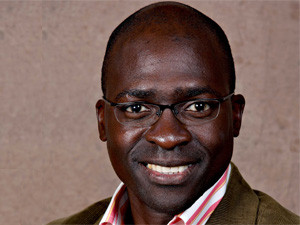
The Department of Home Affairs aims to issue more than 2.2 million smart ID cards by the end of next March, as it steps up its modernisation plans.
In addition, South African citizens will be able to circumvent departmental queues when applying for the new cards by applying at banks, as this system - which will move into pilot phase shortly - should be live at branches across the country by, at the latest, March next year.
During his recent budget vote speech, home affairs minister Malusi Gigaba detailed key modernisation objectives for the 2015/16 financial year, and said the department would issue more than 2.2 million ID cards.
The department decided to use banks as an outlet to issue cards to speed up the process, as it needs to replace all 38 million ID books with the new, more secure, cards. In addition, it wanted to eliminate lengthy queues at home affairs offices.
Gigaba says this plan, dubbed e-channels, will allow clients to log on to the department's Web site, apply for passports or IDs, pay funds electronically and book an appointment online. Once the citizen goes to the bank for an appointment, he or she will go to the counter allocated to home affairs officials, who will verify identities online and capture biometrics digitally.
A few days later, the ID or travel document will be available. Gigaba says this system will, in future, be rolled out to specific digitised offices.
On track
Spokesman Mayihlome Tshwete says the department is on track to kick off its plan to pilot issuing of cards via banks in July. However, this will only initially be available to bank staff at one branch in Johannesburg, and one in Centurion, and only through Standard Bank and First National Bank (FNB).
Tshwete notes all four big banks are now on board with the plan, with Absa having just recently signed a memorandum of understanding. He says, because Absa and Nedbank have only just come on board, Standard Bank and FNB are much further advanced in their plans.
The department had faced challenges around how the payments would work and into which account users would deposit funds, but this has now been clarified, says Tshwete. He adds citizens will also be able to make payments online, and then go to the bank to collect their new identity cards.
Further enhancements
Gigaba adds home affairs is also set to procure hardware for the development of a new Automated Fingerprint Identification System and begin upgrading the Electronic Movement Control System at ports of entry. This will allow the department to capture biometric data of all foreign nationals entering SA from January next year.
"It is essential that we establish an uninterruptible service network which will enable us to serve citizens irrespective of electrical and other faults," says Gigaba.
Gigaba notes, however, none of the advances he discussed will deliver better services unless the department has access to reliable networks. "Recently, our clients have occasionally been frustrated by system disruptions and long queues at offices offering smart ID cards."
To rectify this, the department has implemented several solutions, including a new disaster recovery site, installing generators at offices, and developing an offline mode which will allow it to continue serving customers for a short duration.
"Our e-channels strategy will also be helpful in this regard, in providing alternative channels for us to serve clients, thus expanding our footprint and minimising queues."
Home affairs will also start piloting a payment system at the Edenvale office, says Gigaba. This will allow clients to pay for home affairs services with debit and credit cards, which will be rolled out to all 140 smart ID card offices by March 2016.
Share